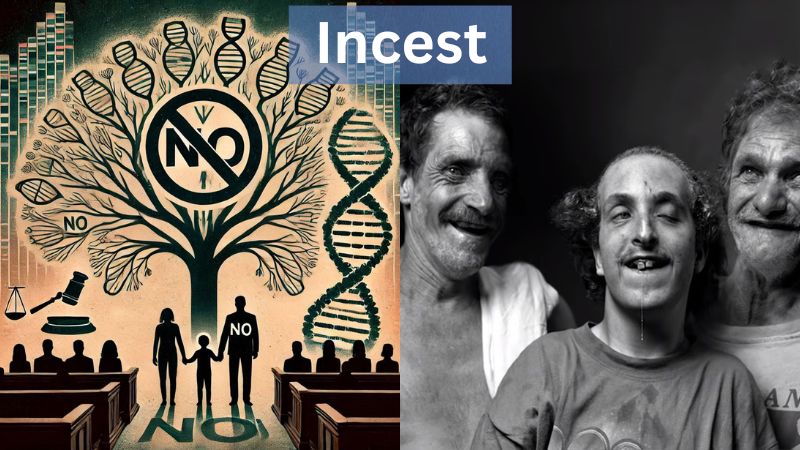Incest, of which first cousin marriage is a subset, is a rather controversial practice which intersects legal, cultural, medical, and ethical considerations. This is again in the news because a UK MP has called for a complete ban on First-Cousin Marriages in the country. It is tolerated socially in some societies but totally banned in others. Nevertheless, the debate over this form of marriage continues globally due to concerns about genetic risks and cultural traditions.
From a genetic perspective, first-cousin marriages significantly increases the probability of inherited disorders and birth defects. When closely related individuals reproduce, there is a higher chance of expressing recessive genetic traits, which can lead to serious health complications for the offspring. Scientific research suggests that children of first-cousin marriages have approximately a 4-6% increased risk of birth defects compared to children of unrelated parents, with the risk of serious genetic disorders potentially doubling.
Legal Angle in Different Countries on First-cousin Marriage
Several countries have implemented legal restrictions on first-cousin marriages, a subsect of incest relations. The United States provides an interesting landscape, depending on the state. Twenty-four states have completely banned first-cousin marriages, while others have additional conditions, such as genetic counselling and age limits, or are altogether prohibited. Arizona and Illinois have conditions under which marriage can occur, such as a genetic test or providing evidence of genetic infertility.
European countries generally maintain more restrictive approaches. Germany, France, and several other Western European nations have banned first-cousin marriages, citing public health concerns and genetic risks. In contrast, some Nordic countries like Sweden have different approaches, focusing on genetic counselling and awareness rather than outright prohibition.
Culturally Prevalent in Muslim Majority Counties/Societies
In West Asia and parts of Asia, first-cousin marriages remain culturally prevalent and socially accepted. Countries like Saudi Arabia, Pakistan, and some parts of the Arab world consider such unions not only permissible but often encouraged as a means of maintaining family connections and preserving social structures. In these contexts, marriages are frequently arranged within extended family networks, with first-cousin marriages representing a traditional practice deeply embedded in social customs.
The current United Kingdom debate, as emphasized by the recent parliamentary debate, mirrors the global conversation which is on the issue of reconciling individual freedoms, cultural practice, and public health considerations. In that respect, the proposed ban by Richard Holden marks a growing concern over potential genetic risks in impacting the autonomy of women in specific community contexts.
Also Read: US, Russia use Terror Groups as Foreign Policy Tools
The Muslim population has seen a considerable surge in European society due to migration from West Asia and North Africa. Muslims are culturally different when it comes to marriage and family. The increased Muslim Population in European society is creating a cultural clash. This is pushing European countries to come up with legal provisions to ban first-cousin marriage. Europeans are well aware that the faith of the Muslim people is so strong that after knowing the scientific and educational reason behind not ‘do cousin Marriage’, they will end up doing so. Hence, a legal remedy is required.
Richard Holden, a Conservative former minister in Parliament, said that while the overall prevalence of first-cousin marriage was low in Western countries, certain diaspora communities, such as Irish travellers and British Pakistanis, had “extremely high rates” of 20-40%.
Muslim-majority countries exhibit diverse perspectives on first-cousin marriages. While Islamic religious texts do not explicitly prohibit such unions, interpretations vary. Some countries, like Turkey, have implemented strict genetic counselling requirements, while others maintain more traditional approaches that facilitate such marriages.
Cultural anthropologists argue that first-cousin marriages serve multiple social functions beyond reproduction. In some societies, these marriages strengthen familial bonds, preserve economic resources within family units, and maintain complex kinship networks. However, modern medical understanding increasingly challenges these traditional justifications by highlighting potential genetic risks.
What is Way Forward?
The most effective approach to addressing first-cousin marriages appears to be a multifaceted strategy involving education, genetic counselling, and awareness programs. Rather than implementing blanket bans, many experts recommend providing comprehensive information about potential health risks, offering advanced genetic screening, and empowering individuals to make informed reproductive decisions. However, these modern techniques may not work on the “peaceful religion” because of their strong belief in their faith.
